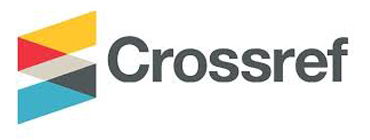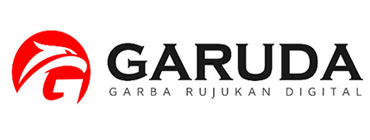IMPROVING THE STUDENTS’ VOCABULARY MASTERY THROUGH RIDDLE GAME TECHNIQUE AT THE EIGHT GRADE OF JUNIOR HIGH SCHOOL STUDENTS OF SMP SWASTA R.A KARTINI TEBING TINGGI
Abstract
This research was aimed to improve the students’ vocabulary mastery by using riddle games. The subjects of this study were 25 students at eight grade in smp swasta R.A Kartini Tebing Tinggi. This research was conducted by using classroom action research that consist of 2 cycles. The technique of analyzing data for quantitative data was the students’ score of test. While for qualitative data, the researcher used observation and interview. The result of this research showed that the mean of the students score was 51,6 in which there were 4 from 25 students (16%) who passed the minimum criteria of mastery learnings (KKM). In the post test I, there were 10 from 25 students (40%) who improved and the score mean was 63,6. Meanwhile, in the post test II, the mean score was 84,8. There were 23 students (92%) passed the minimum criteria of mastery learnings (KKM). It is indicated that riddle game could improve the students’ vocabulary. This result is strength by the observation and the interview result that students were more active in the class and enjoy the learning process
Keywords: Vocabulary Mastery, Using Riddle Game
Full Text:
PDFReferences
Abdullah Yusuf Ali. (2004). The Meanings of the Illustrious Qur’an with Footnotes. (New Delhi: Adam Publishers & Distributors).
Andrew K. Shenton, 2004, Strategies for Ensuring Trustworthiness in Qualitative Research Projects. UK: IOS Press,
Aebersold, Jo Ann and Mary Lee Field. (1997). From Reader to Reading Teacher.Cambridge: Cambridge University Press.
Arikunto, Suharsimi. (2007). Penelitian Tindakan Kelas. Jakarta: Bumi Aksara.
Alqahtani, Mofareh. (2015). The Importance of Vocabulary in language learning and How to be Taught. International Journal of Teaching and Education. Vol III. No.3. Brassell, Danny; Furtado, Leena. (2008). Enhancing English as a second Language students’ vocabulary. Vol. 8, No. 1 The Reading Matrix.
Cynthia A. Barnhart. (2008). The facts on file student’s dictionary of American English. American.
Ellis et all. (1998). Vocabulary Mastery, Accessed on 9th January 2017(www.wordpress.com).
Evans, Bergen: Evans, Cornelia. (1957). A dictionary of contemporary American usage,New York, Random House, Inc.
Ghaedrahmat, Mehdi. (2016). Teaching Vocabulary Electronically: Does It Work For Iranian. Iran.
Gubrium, J.F & Holstein, J.A. (2001). Handbook of interview research: context and method. Thousand Oaks, California: Sage.
Hayati, Nikmah Tanjung. (2018). Improving the Students’ Vocabulary Mastery Through English Newspaper Articles at Eighth Grade of MTs S Babul Ulum Medan Labuhan. UIN Sumatera Utara.
Hasan Alwi, dkk. (2007). Kamus Besar Bahasa Indonesia. Jakarta: Balai Pustaka, 2007), hlm. 1186.
Judy K. Montgomey. (2007). The Bridge of Vocabulary: Evidence Based Activities for Academic Success. NCS Pearson Inc.
Longman. (2007). Advanced American Dictionary. England: Pearson Education Limited. Lusiana, Eka Rahmadanta, (2018). The Effect Of Using Riddle Technique On Students’Vocabulary Mastery Of The 2017/2018 Tenth Grade Students Of Smk Swasta Pemda Langkat Bahorok. Vol. 1.
Refbacks
- There are currently no refbacks.

This work is licensed under a Creative Commons Attribution-NonCommercial-ShareAlike 4.0 International License.
INDEXING
Bright Vision by UIN Sumatera Utara Medan is licensed under a Creative Commons Attribution-NonCommercial-ShareAlike 4.0 International License.
Based on a work at http://jurnaltarbiyah.uinsu.ac.id/index.php/brightvision.









